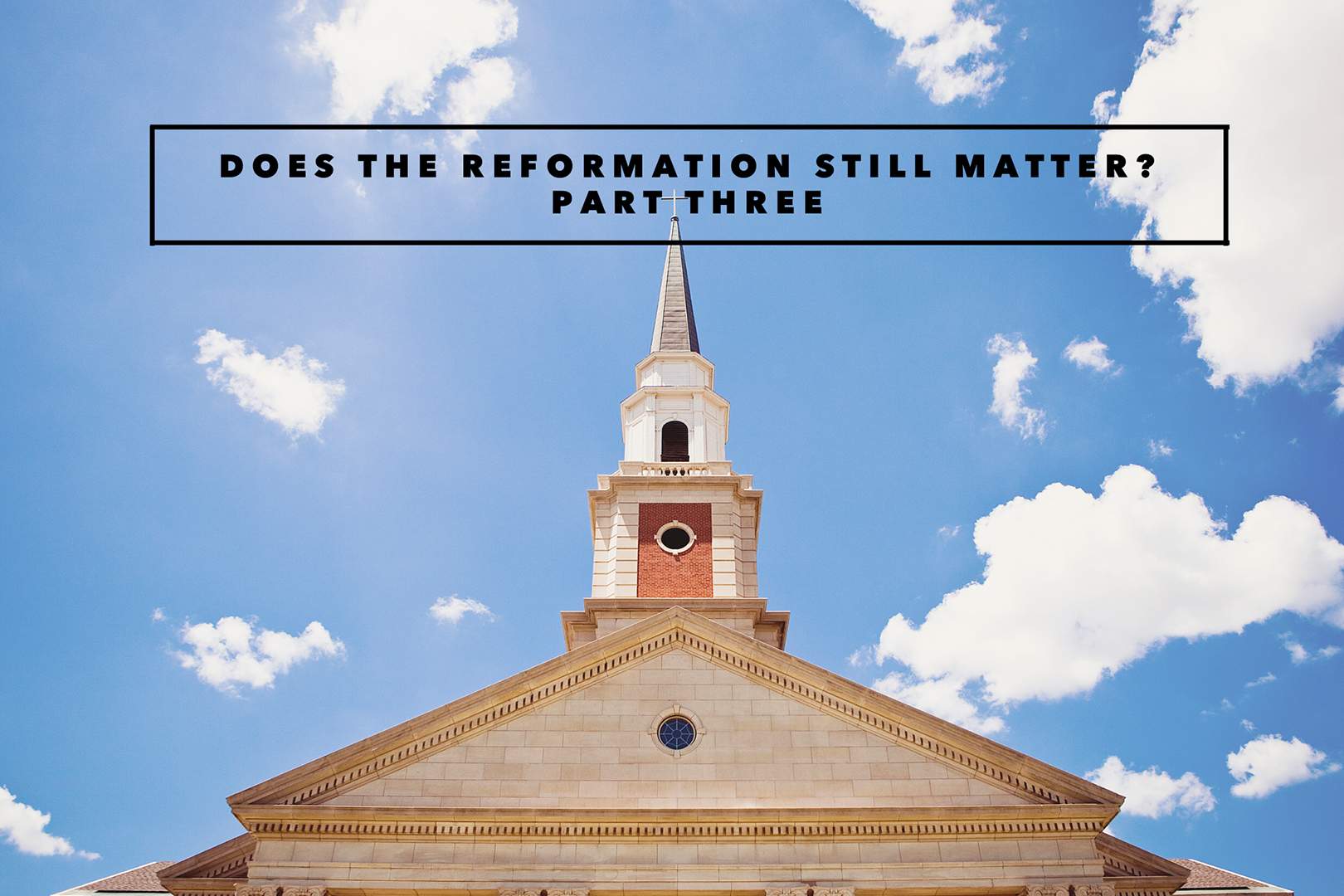
Does The Reformation Still Matter? Part Three: An Interview with Gregg Allison
I recently sat down with Dr. Gregg Allison. Gregg is Professor of Christian Theology at The Southern Baptist Theological Seminary in Louisville, KY. Many of our Redeemer folks will know Gregg as Lauren Schneringer’s father (Troy and Lauren Schnerigner are members at Redeemer Church). Gregg recently co-authored a book titled The Unfinished Reformation, with Chris Castaldo.
When Gregg and Nora were in town visiting family for Christmas, he was gracious enough to sit down and allow me to ask him a few questions about his most recent book as it has close ties with our “Five Solas” sermon series we had recently completed.
Ryan Welsh (RW): In the beginning of the book, you ask the question, “Is the Reformation finished?” At the end of the book, your conclusion is “No, but…” Can you elaborate on what you mean?
Gregg Allison (GA): No, it’s not over because the key points of the Reformation still continue to be dividing points today. Things like Sola Scriptura (Scripture Alone) and Sola Gratia (Grace Alone) continue to be points of battle today between the Protestant Church and the Roman Catholic Church. Therefore, the Reformation is not over, but we are in a different context—a different world than the reformation when it began in the sixteenth century. Back in the sixteenth century, Catholics and Protestants would literally kill each other over these issues. Today there is no violence over these doctrines and furthermore, there are recognized and acknowledged areas of agreement. Protestants and Catholics do have some common ground today, such as the Trinity and Christology. So, no it’s not over, but we approach the discussion differently and have mutual respect and love for each other.
RW: We, at Redeemer Church, recently finished our study of the Five Solas. One of the things that I regularly mentioned was that the Protestant Church today is actually struggling with these doctrines amongst itself. Even if we leave the Catholic Church out of the discussion, the Protestant Church can’t even agree on the Five Solas. I believe that the Sola that is most under attack today, within the Protestant Church, is Sola Scripture, specifically the sufficiency of Scripture. From your professor hat, as well as your pastoral hat, tell me what you think the best approach is to fighting against the slipping back into pre-reformation thinking regarding the sufficiency of Scripture?
GA: I think expository preaching (preaching through books of the Bible) is the proper mode for teaching Christians that the whole Bible is God’s Word and covers every aspect of our lives. The sufficiency of Scripture is being attacked today by things like experience. People will say “I had an experience where God was like this to me.” So this person formulates their view of God by their felt experience rather than by what Scripture says about Him. Also, prophetic words. “The Lord told me that I’m supposed to do this.” This is immediate and doesn’t require reading the Bible, therefore it’s easier. However, many times the prophetic word will not line up with Scripture— so which should the Christian obey? That’s a very practical problem.
 I hope I’m not stepping on any toes when I say this, but books like Jesus Calling are teaching Christians to look beyond what Scripture says. In this book, Sarah Young claims to be hearing directly from the Lord and writes down what she’s heard. She doesn’t call this “direct revelation,” but she presents it that way. Millions of Christians are reading her book and nourishing their view of Jesus by what she presents. In her writings, Jesus is always peace; He would never be a Revelation 19 Jesus.
I hope I’m not stepping on any toes when I say this, but books like Jesus Calling are teaching Christians to look beyond what Scripture says. In this book, Sarah Young claims to be hearing directly from the Lord and writes down what she’s heard. She doesn’t call this “direct revelation,” but she presents it that way. Millions of Christians are reading her book and nourishing their view of Jesus by what she presents. In her writings, Jesus is always peace; He would never be a Revelation 19 Jesus.
RW: Inevitably, there are many at Redeemer that read Jesus Calling. Many use it as a daily devotional and it sits on their nightstand. What would you ask them to think through before they continue reading it?
GA: I would start with the theological point that her book denies the sufficiency of Scripture. It is a clear challenge to the Word of God. Any book that adds teachings about who Jesus is, what He has and will do, as well as makes new commands, outside of what the Bible presents is by definition an attack on the sufficiency of Scripture. Second, practically speaking, the book is really easy to read. It’s immediate— it’s very easy to understand. Our culture places such a high value on immediacy. Reading and studying Scripture takes time and so we rebel against it because it can be uncomfortable and take a lot of our time. However, the truths taught in Scripture are deep and cut down to the marrow and are meaningful and helpful during the hard times as well as the good times. When a Christian only reads the shallow and immediate things, they find themselves lacking during times of trial when the shallow words of a book just don’t address who the God of the Bible truly is and what He has done and what He will continue to do.
RW: Why should Christians know about the Reformation and care about the Reformation?
GA: Let’s just think about our salvation and the assurance we have because of the penalty paid by Christ on the cross. At the heart of the Reformation was God’s work of justification, where He declares sinners not guilty and instead declares them 100% righteous. Not because of anything inherent in them, or any work they may do, but solely by the work of Christ’s perfect righteousness being credited to their account. So if I want the surest foundation of my salvation, I find it in justification— that God has banged the gavel of His judgment and said, “there is no longer any condemnation for those who are in Christ Jesus.” If we seek to ground our salvation on anything else—works that we engage in or contributions that we offer, even continuing in faith and obedience— it’s just not going to work. I know that I don’t have to ask, “Have I done enough” or “Have I been faithful enough.” I know that with Jesus, it is finished! Remembering the truths of Scripture, that were at the heart of the Reformation, relieves me of believing the lie that I have to perform to please God and keep my salvation.
